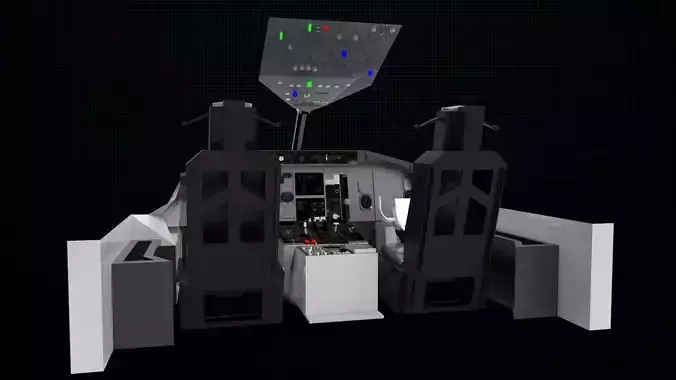1/14
A cockpit or flight deck is the area, usually near the front of an aircraft or spacecraft, from which a pilot controls the aircraft.
Cockpit of an Antonov An-124
Cockpit of an A380. Most Airbus cockpits are glass cockpits featuring fly-by-wire technology.
Swiss HB-IZX Saab 2000 during flight
Robin DR400
1936 de Havilland Hornet Moth
Cockpit of Cessna 182D Skylane
View of a Cockpit seen from outside (Boeing 747-400)The cockpit of an aircraft contains flight instruments on an instrument panel, and the controls that enable the pilot to fly the aircraft. In most airliners, a door separates the cockpit from the aircraft cabin. After the September 11, 2001 attacks, all major airlines fortified their cockpits against access by hijackers.The word cockpit seems to have been used as a nautical term in the 17th century, without reference to cock fighting. It referred to an area in the rear of a ship where the cockswain's station was located, the cockswain being the pilot of a smaller boat that could be dispatched from the ship to board another ship or to bring people ashore. The word cockswain in turn derives from the old English terms for boat-servant (coque is the French word for shell; and swain was old English for boy or servant).[3] The midshipmen and master's mates were later berthed in the cockpit, and it served as the action station for the ship's surgeon and his mates during battle. Thus by the 18th century, cockpit had come to designate an area in the rear lower deck of a warship where the wounded were taken. The same term later came to designate the place from which a sailing vessel is steered, because it is also located in the rear, and is often in a well or pit.[4][5][6]
However, a convergent etymology does involve reference to cock fighting. According to the Barnhart Concise Dictionary of Etymology, the buildings in London where the king's cabinet worked (the Treasury and the Privy Council) were called the Cockpit because they were built on the site of a theater called The Cockpit (torn down in 1635), which itself was built in the place where a cockpit for cock-fighting had once stood prior to the 1580s. Thus the word Cockpit came to mean a control center.[7]
The original meaning of cockpit, first attested in the 1580s, is a pit for fighting cocks, referring to the place where cockfights were held. This meaning no doubt influenced both lines of evolution of the term, since a cockpit in this sense was a tight enclosure where a great deal of stress or tension would occur.[5]
From about 1935,[8][citation needed] cockpit came to be used informally to refer to the driver's cabin, especially in high performance cars,[9] and this is official terminology used to describe the compartment[10] that the driver occupies in a Formula One[
REVIEWS & COMMENTS
accuracy, and usability.














